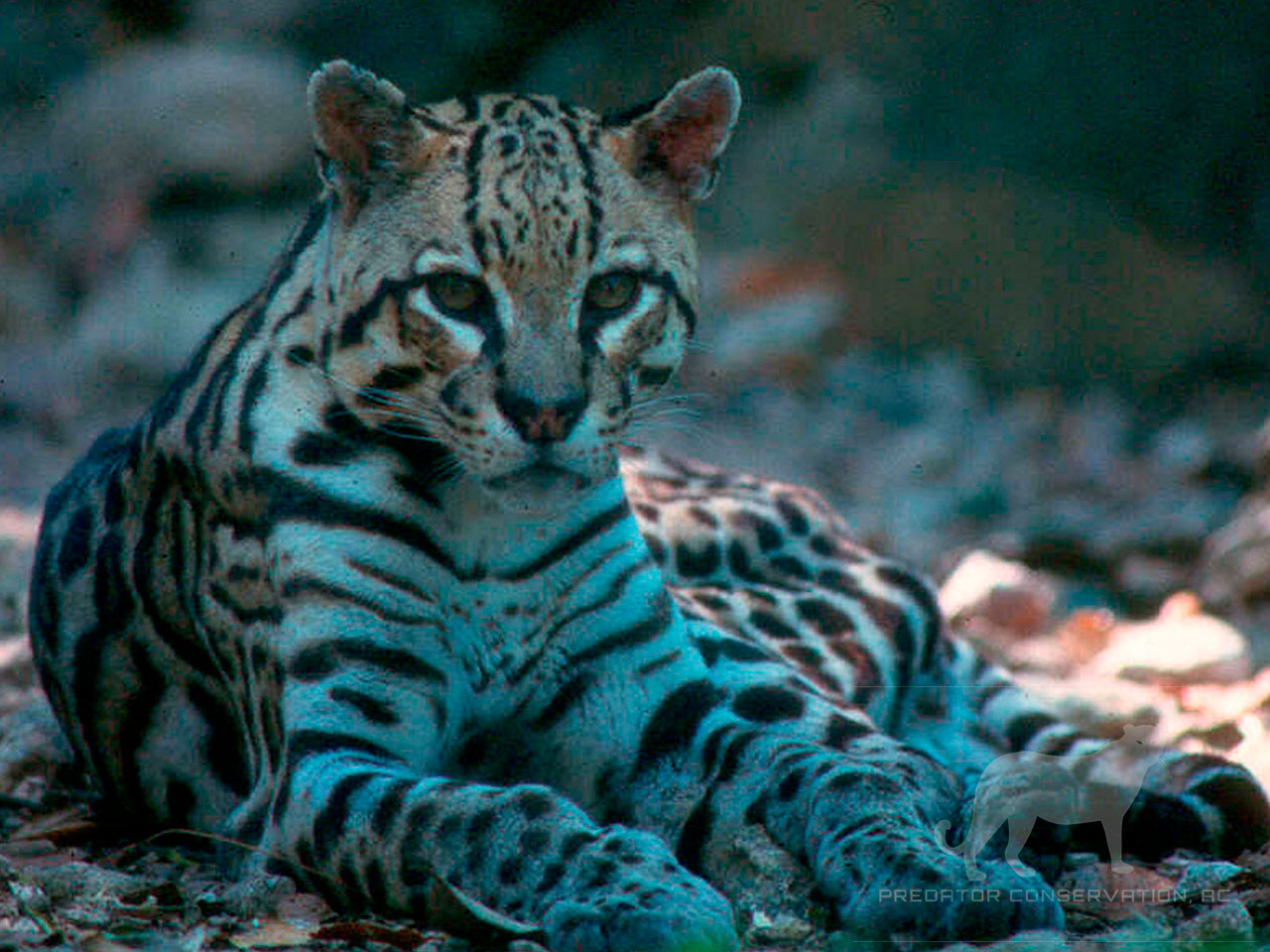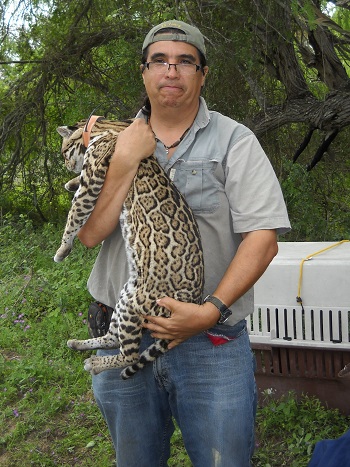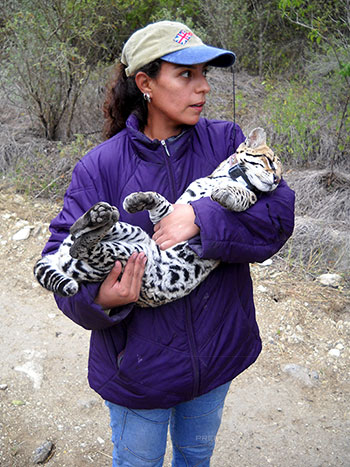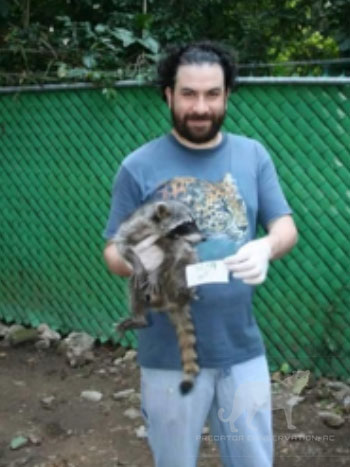Who are we?
Predator Conservation A.C.

In Mexico there are 33 species of carnivores and many of them are threatened or endangered, so their conservation is of outmost importance in our country. However, wildlife species do not recognize political borders and our studies have produced publications from wildlife of Mexico and other countries. Future generations must know what is the importance of preserving wildlife species and which modern techniques are necessary for their study and conservation.
Furthermore, carnivores are excellent indicators to measure if there are any disturbances in an ecosystem, so the evaluation of their populations is necessary in the case of any work that involves the deterioration of a jungle, desert, forest, savannah, mangrove, etc. and, the problems caused by climate change.
Our main goal is to evaluate wild carnivore populations in certain regions in order to establish how healthy the ecosystems are.
PRESENTACIÓN EJECUTIVA

Ph.D. ARTURO CASO AGUILAR
Ph.D. SASHA CARVAJAL VILLARREAL
Biologist graduated from the Autonomous University of Nuevo León, with a Master of Science in Biology from the Tecnológico de Cd. Victoria and Ph.D. in Wildlife Ecology from Texas A&M University-Kingsville. He has worked (monitoring and research) with the 6 wild cats of Mexico and other carnivores such as the black bear. His field experience has consisted of capture, radio-telemetry and remote camera monitoring of these species. Currently, she is Director of this Association, and she is also a member of the Alianza Nacional para la Conservación del Jaguar Sasha, is also working on the “Data Hunters” project in the identification of African leopard individuals for a population study in Tanzania and Zambia and also she is evaluating the carnivore populations in the Protected Area, "Sierra Gorda" of Querétaro, Mexico. Link CV.


MVZ, M.C. EMILIO RENDÓN FRANCO
Veterinarian, Zootechnician, graduated from the Faculty of Veterinary Medicine and Zootechnics of the UNAM, has a Master's Degree in Health Sciences and Animal Production and is a candidate for a Doctor of Sciences in Immunology. Emilio has a certification in Wildlife granted by the National Certification Council in Veterinary Medicine and Zootechnics, A.C.(CONCERVET) Emilio, is a Full-Time Associate Professor- Researcher at the Metropolitan Autonomous University, Xochimilco Unit. Emilio has focused his studies on the evaluation of the health of different mammals and birds and is a Member of this Association. Recently, Emilio spent a stay in South Africa where he studied the health status of the serval and other carnivores. Link CV.
Publications
- Arturo Caso's PhD thesis about the ecology of ocelots and jaguarundis using VHF radio-telemetry Get PDF
- Sasha Carvajal's PhD thesis about the use of remote-sensing cameras to obtain population densities of different feline species (including jaguar, ocelot, bobcat, and jaguarundi) in Tamaulipas, Mexico Get PDF
- Article about the home range size of the margay in "El Cielo" Biosphere Reserve. Get PDF
- Wild jaguarundi genetics in Tamaulipas, México. Get PDF
- CENJAGUAR (National Jaguar Census) in Tamaulipas, Mexico. Get PDF
- Frecuencies of Toxoplasma antibodies in carnívores and marsupials Get PDF
- Hog-nosed skunk population genetics in Texas Get PDF
- Margay conservation in “El Cielo” Biosphere Rerve. Get PDF
- Artícle about our African lion study Get PDF
- African leopard report Get PDF
- Ocelot and bobcat genetics in northeast Mexico Get PDF
- Ocelot genetic variation in South Texas Get PDF
- Loss of genetic variation in the ocelot in the United States Get PDF
- Prevalence of toxoplasma antibodies in wild ocelots Get PDF
- Prevalence of toxoplasma antibodies in wild rodents that are prey of ocelots Descargar PDF
- Local people remote-sensing camera workshop Get PDF
- African lion Report for TAWIRI comparing two game reserves in Tanzania. Get PDF
- “Data Hunters” preliminary leopard report for Tanzania & Zambia Get PDF
- LANDSAT image use for ocelot habitat identification Get PDF
- Jaguar, ocelot, and jaguarundi presence in the Sierra of San Carlos, Tamaulipas, Mexico Get PDF
- Satellite and Gps collars problems with various wildlife species Link PlosOne
- Presence of Rickettsia in ticks on wild bobcats in Tamaulipas, Mexico Get PDF
- Hair snares (traps) to obtain hair samples for genetics in carnivores Get PDF
- Chemical immpobilization on a wild puma with ketamine-medetomidine drugs Get PDF
- Jaguar distribution and vegetation corridors in protected areas of Mexico Get PDF
- Status and Distribution of the jaguarundi in Texas and NE Mexico Get PDF
- Ocelot density and habitat use in NE Mexico Get PDF
- Scientific article about our ocelot study in the Sierra of Tamulipas, Mexico Web link
- Preliminary report of our leopard density study in Tanzania, East Africa Get PDF


